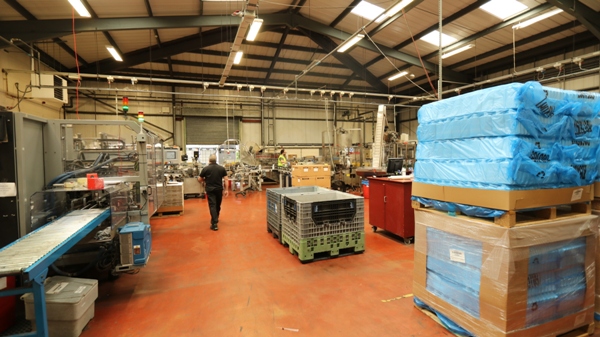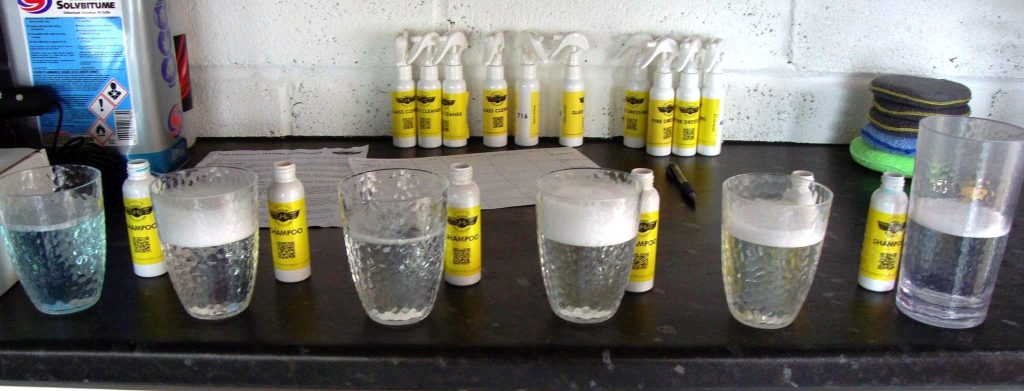The White Label Debate
It doesn't take long when perusing the various online forums and groups to come across some fearsome argument about white labelling. The characters involved are normally the sort that are pretty sure they know more than the rest of the world's population combined. They can't be entirely sure though, as they would need to leave their bedroom and get permission from their landlord and mother to leave the house and see the world through something more vivid than a computer screen.
I thought it was about time that we clarified matters, partly because the debates got tedious at some point in 2007, and partly because I keep seeing companies being wrongfully put down, or lauded above all others without justification. You might ask what gives me the right to comment: firstly I ran a car care brand prior to the trade association and magazine. Secondly, I speak to manufacturers and the supply chain weekly, and thirdly, Mummy has locked the door from the outside, again.
The term 'white-labelled' applies to a product that has a blank label at the point of production, not sale. In the strictest sense, it should only apply to products that are sold unlabelled, then sold again once a label has been stuck on. This immediately rules out 95% of the products that have been deemed 'just' a white-labelled product. However, just because a product isn't technically-speaking a 'white labelled' product, doesn't mean it is a truly unique item worthy of universal adoration and respect.

Above is the Autoglym factory we visited for an article in the third issue of the PRO Detailer magazine - they develop, produce, bottle, label and distribute products under one roof - ironically most of their labels are white, even if they are the antithesis of a 'white-labeller'.

Above are six shampoos that were blind-tested in issue 2 of the Pro Detailer Magazine - with the labels and branding stripped away it was clear they were all different.
Rather than viewing the market as black and white, it is far more constructive to consider it a spectrum. At one end there is the true 'white label’ - which we shall call "Level 1", and at the other end, a genuinely unique product "Level 5".
Level 1 - These are people who have literally picked up the phone after a Google and ask for fifty bottles of shampoo - they don't care if it is any good, they don't know anything about chemistry, they just care about the price. They normally just ask for their brand name to be on the bottle.
Level 2 - These will take a totally generic product and put all their efforts into the marketing. They will call the same chemical manufacturer as the Level 1 folk, ask for fifty litres of shampoo in bulk - though perhaps with a different colouring and smell to the off-the-shelf offering. They will then source bottles (often inappropriate for the chemical), get labels designed and printed (usually without the correct safety information), stick the finished product on a website and start the promotion game.
Level 3 - Here we get into those products that some would declare as white labelled, but are actually well worth trying. They will ask for a range of shampoo samples to test. They will then get to work trying them and asking for the lubricity of sample 2, the cleaning power of sample 6, the smell of sample 1, and the concentration of sample 4. At which point, another set of modified samples will come from the factory, and they will repeat the process until they are happy with the product. Then they will organise bottles, labels, and all the other baggage, such as product insurance.
Level 4 - This is when the products are put together by the chemists themselves. In the rare cases where an industrial chemist quits their highly paid job in industry to work in their garden shed, and try and develop something different. They are usually car care enthusiasts, or have partnered up with one, and the development phase takes a lot of time and money.Sometimes they run out of both and release the products too early - equally they can be great chemists but have no marketing skills, resulting in a flop. If they make it through, and start making sales, they will then normally commission a big chemical plant to manufacture the products to their specifications and become established.
Level 5 - Very few companies start at this level. They usually reach it once they have become established. Alternatively it can happen that an existing chemical company decides to diversify into car care. The top level is a brand that researches, develops, tests, and manufactures the vast majority of their own products. Even here, some products may have to be bought in from a company with the specialist equipment required for making a specific product or ingredient. Worldwide, there are probably less than a dozen companies at this level.
The real kicker, having created these steps within the spectrum is that the two aforementioned extremes don't really exist. White-labelled products are designed and developed like any other - there's nothing wrong with them per se - they just happen to be sold by people who didn't make them. Equally, even products supposedly designed from the ground up will contain ingredients common to other products - there is no point trying to re-invent the wheel every time you bring out a new shampoo.
Personally, my biggest gripe is with the smoke and mirrors. I have been approached by so many people claiming to have their own chemist working alchemy on their behalf. If they were to be believed, there would be dozens of industrial chemists of Noble Laureate status, locked in basements doing five days work a year.
Ultimately, use the products you like, and try new things, but choose carefully to avoid testing five different products that are exactly the same.

